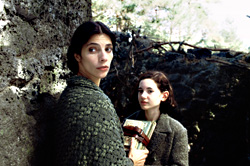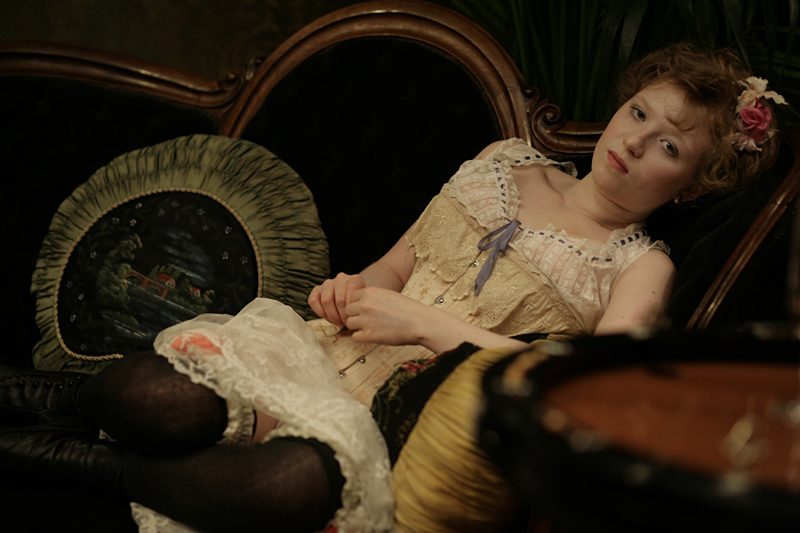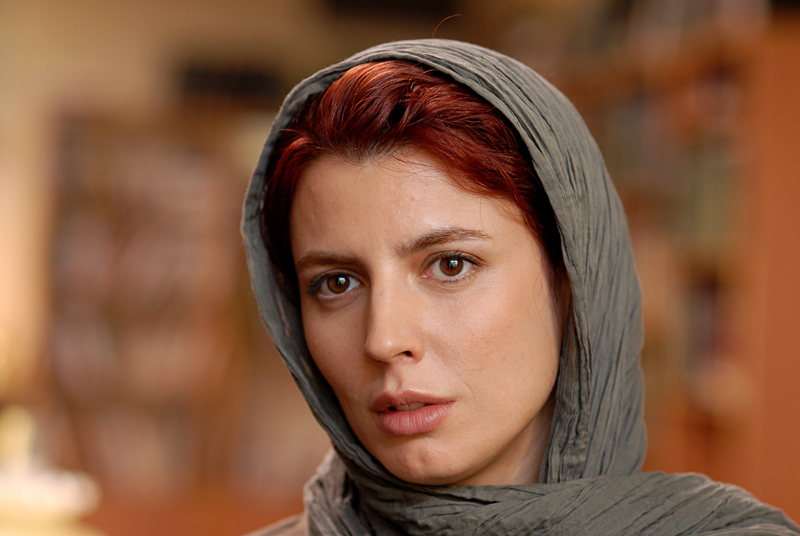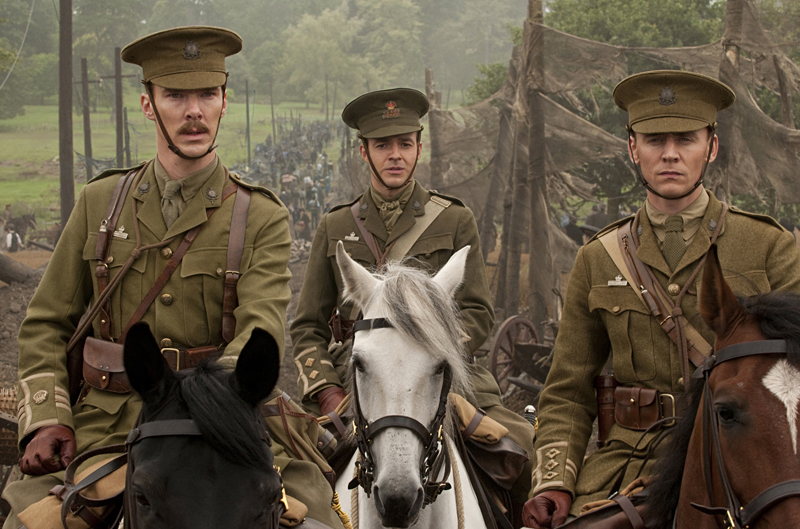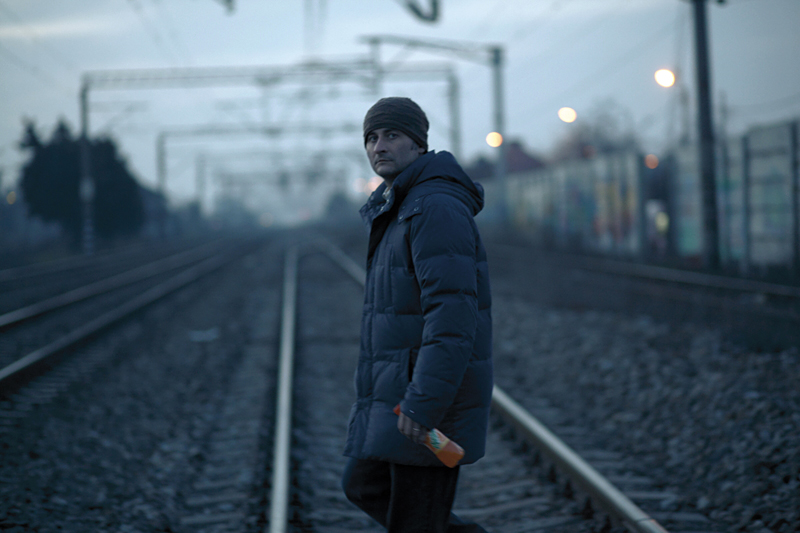Written and directed by Guillermo del Toro, Pan’s Labyrinth is something alchemical. To an astonishing degree, the 42-year-old Mexican filmmaker best known for his contribution to the Blade and Hellboy franchises has transformed the horror of mid-20th-century European history into a boldly fanciful example of what surrealists would call le merveilleux.
Literally and figuratively marvelous, a rich, daring mix of fantasy and politics, Pan’s Labyrinth begins with a “once upon a time” and then becomes utterly specific. Spain 1944: The civil war is over, and Franco’s Falangists have long since subjugated the country. The Maquis, last remnants of Republican resistance, are fighting a rearguard action in the forested northern hills. Ofelia (Ivana Baquero) and her ailing, pregnant mother (Ariadna Gil) have been relocated there, to a remote military base commanded by her new stepfather, Capt. Vidal (Sergi López), a cold, brutal autocrat.
Pan’s Labyrinth itself may be too cruel and bloody for children, although kids would surely appreciate its exquisite yuckiness. (Del Toro can be as textural as David Cronenberg.) But this R-rated poetic fable is nonetheless set in a child’s archaic reality, a magic world of ancient ruins and “fairy” insects. A persistent dragonfly (perhaps the manifestation of her own incipient madness) guides Ofelia from her bedroom to the center of an overgrown garden maze. There in the darkness she encounters the horned and wall-eyed faun. This mossy, capricious creature is an altogether different type than the gentle little Narnian faun who befriends the young heroine in The Lion, the Witch and the Wardrobe—a movie that del Toro turned down, apparently for religious reasons. (He told Sight and Sound that he “wasn’t interested in the lion resurrecting.”)
The faun persuades Ofelia that she is an orphaned princess and assigns the gravely self-contained child a series of magical tasks; her adventures in the underworld are then intercut with the guerrilla war in the woods. Del Toro has an unusual capacity to keep the narrative moving on two levels. Secrets abound. Everyone has a mission. The commander’s housekeeper, formidable, fearless Mercedes (the movie’s secret star, Maribel Verdú, best known as the older woman in Y Tu Mamá También), is aiding the insurgents—as is the local doctor. From Ofelia’s perspective, there are all sorts of monsters, human and otherwise. The latter range from the living mandrake root the child uses to forestall her mother’s miscarriage to the blind, devouring Pale Man (played, like the faun, by the protean Doug Jones). The human monster is, of course, the faun’s counterpart: the murderous Vidal.
Del Toro has mixed the political and the supernatural before. Another tale of an abandoned child in the Spanish Civil War, The Devil’s Backbone (2001) was a discomfiting, albeit ambitious, mix of gothic thriller, boy’s adventure story, and political allegory—visually coherent if thematically cacophonous. Pan’s Labyrinth, by contrast, is not just strongly imagined but superbly integrated and marvelously fluid. It’s also highly resonant. Just as the images in Ofelia’s magical book (illustrated by the filmmaker himself) spread like Rorschach blots across the pages, all manner of conflicts and parallels churn below the film’s narrative.
That surface is voluptuously detailed. The lighting is molded; the chiaroscuro is almost cloying. Javier Navarrete’s score is rhapsodic. The totality of del Toro’s design seems comparable to Tim Burton’s (and del Toro seems equally taken with the dark, gnarly work of the early- 20th-century English illustrator Arthur Rackham). But unlike Burton—or His Imperial Cuteness Steven Spielberg— del Toro is immune to whimsy. There’s certainly a measure of pathos to the movie’s ending, but there’s nothing saccharine about Ofelia’s struggle with evil.
Magic realism leavened with moral seriousness, Pan’s Labyrinth belongs with a handful of classic movie fantasies: Cocteau’s Orphée, Charles Laughton’s The Night of the Hunter, Neil Jordan’s The Company of Wolves. Its key precursor, however, may be the greatest of Franco-era Spanish movies, Víctor Erice’s Spirit of the Beehive. Although utterly different types of filmmaking, each of these is the story of a brave little girl lost in a world of make-believe—at once an intuitive antifascist and the innocent victim of a monstrous system.
